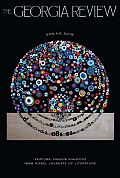Obit: Language
Language—died on August 3, 2015, at 7:09 AM. I heard about my mother’s difficult nights. I hired a night person. By the time I got there, she was always gone. The night person had a name but was like a ghost who left letters on a shore that when brought home became seashells. Couldn’t breathe, 2:33 AM. Screaming, 3:30 AM. Calm, 4:24 AM. I got on all fours, tried to pick up the letters like a child at an egg hunt without a basket. But for every letter I picked up, another fell down, as if protesting the over-simplification of my mother’s dying. I wanted the night person to write in a language I could understand. Breathing unfolding, 2:33 AM. Breathing in blades, 3:30 AM. Breathing like an evening gown, 4:24 AM. But maybe I am wrong, with death simply death, each slightly different from the next but the final strikes all the same: how the body responds to a wedding dress in the same way it responds to rain.
Obit: Victoria Chang
Victoria Chang—died on August 3, 2015, the one who never used to weep when other people’s parents died. Now I ask questions, I bring glasses. I shake the trees in my dreams so I can tremble with others tomorrow. Only one of six siblings came to the funeral, the oldest uncle. A few called and cried or asked questions. This uncle said he knew something had happened because the morning my mother died he felt someone kick him, certain it was her. Now I know others had found my mother difficult, too. But she was not his mother. She was mine, all mine. Therefore anger toward her was mine. All mine. Anger after someone has died is a cake on a table, fully risen. A knife housed in glass.




